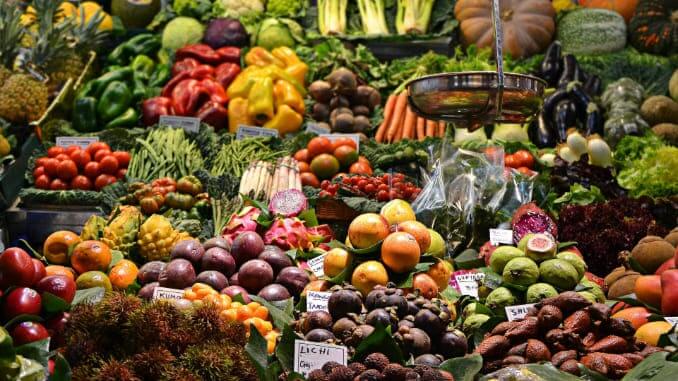7 Food-Focused New Year’s Resolutions That Have Nothing to Do With Weight Loss
Photo by Jacopo Maia/Unsplash
Early January feels like a minefield for anyone trying to cultivate a healthy relationship with food. You’ve just spent the last few weeks eating basically whatever you want during the holidays, and suddenly, there’s a ton of pressure to make a resolution to throw out all the leftover pie and mashed potatoes you have stashed in the fridge in favor of bland, leafy salads and overpriced green smoothies.
But January is long, cold and, frankly, depressing for many of us. It actually seems like the worst time to ditch the warming, comforting foods we spend all December enjoying, instead opting for raw vegetables and frozen fruit all to drop a few pounds at the beginning of the year.
I personally love setting resolutions for the new year, but the preoccupation with losing weight at the beginning of the year just has to stop. There are simply more interesting goals to set for yourself for the year ahead. But just because you’ve decided not to try to drop weight doesn’t mean your New Year’s resolutions can’t be focused on food. Here are some of the resolutions you may want to consider if you want to reevaluate the role food plays in your life.
1. Eat in season more.
There are so, so many reasons to consider eating in season more. First of all, your produce is simply going to taste better. You know how grainy and pale tomatoes get in the winter? That’s because they’re not actually in season during the colder months of the year. Opt for carrots, carrots and cabbage in the winter if you want more delicious produce. Not only will these foods taste better, but they’ll also be less expensive than out-of-season produce, which has to be shipped in from farther away. Plus, it’s easier to buy from local producers if you choose to eat in season.
2. Waste less food.
People in the United States waste 80 million pounds of food each year, which means that a huge portion of the food in your fridge is probably going bad before you get the chance to eat it. Not only is that not ideal for the planet—it takes resources to produce and transport that food, after all—but it also means most of us are just throwing money away on a weekly basis. Try to find creative ways to use leftovers and food scraps in the kitchen, and you’ll find yourself saving money and eating more sustainably.
-

-

-

-

-

-

-

-

-

-

-

-

-

-

-

-

-

-

-

-

-

-

-

-

-

-

-

-

-

-

-

-

-

-

-

-

-

-

-

-








































